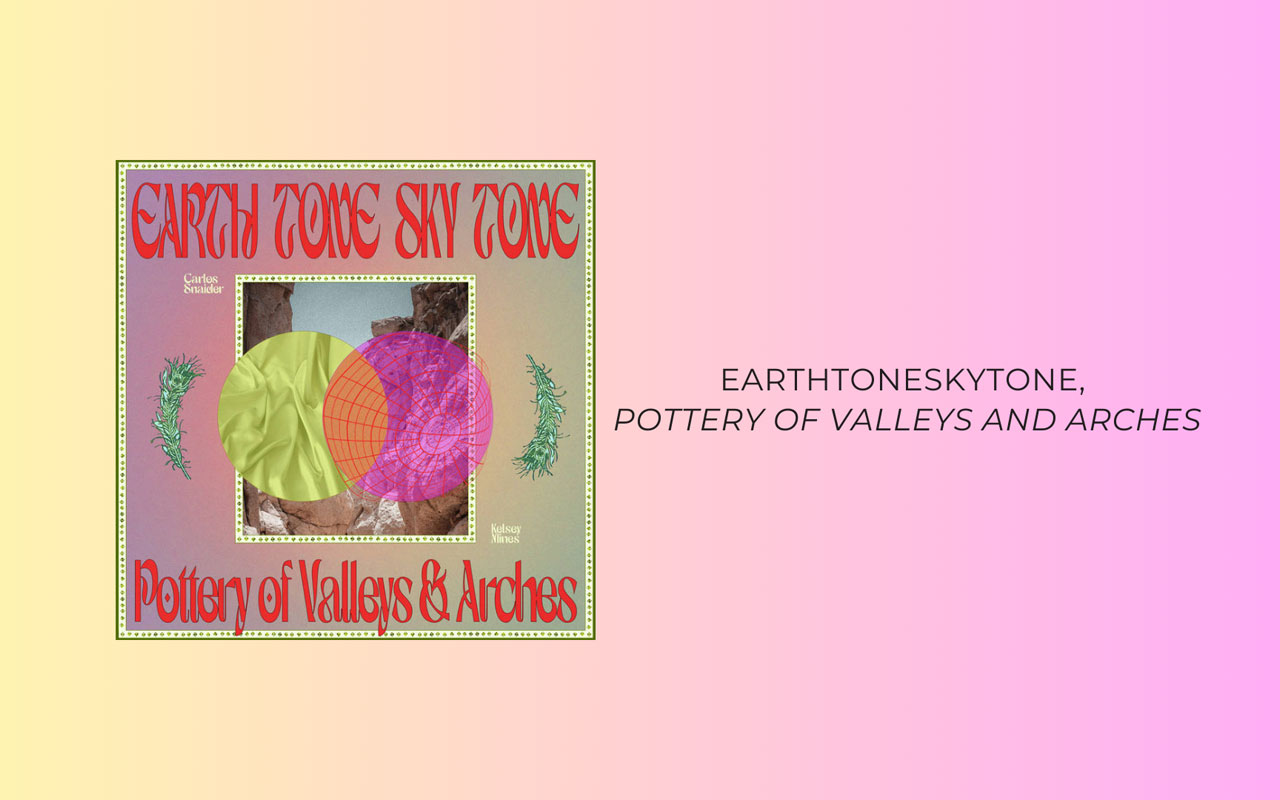
Self-released, November 2024
In their debut album, EarthtoneSkytone (ETST) embrace, well, a multitude of tones. Throughout Pottery of Valleys and Arches, the members of ETST riff on disparate styles — from bedroom pop to bossa nova to folk rock — to create sophisticate virtual worlds. It’s a bold start for the small group founded by co-leaders Carlos Snaider (guitar/vocals/production) and Kelsey Mines (bass/vocals). Mines is a Seattle native while Snaider brings the ear of a wanderer, including his Latin American heritages, to bear.
While unabashed in their textural play, ETST makes a grounding gesture by rooting their name in the language of landscape and the album title in the language of crafts. The discipline and experience of each member can be heard in the careful control of mixed-meters and the mutual trust amongst one another that allows each to add their colors to the mix.
Snaider’s guitar moves between airy and colorful to gritty and indigo-hued. His blues-inflected ululation brings to life “Coexist.” Snaider plays into the chunky beats on “Tend Toward Whispers” and “Sky Below.” Mines’ vocals are no less powerful, ranging across styles deftly, from more traditional jazz tones to a reserved, dreamy sing-song style reminiscent of the early Joan Baez (“Bent From the Wild”). The dynamism pays off with a unique flavor of earthy rock alongside the more atmospheric keys and guitar. String arrangements give body to some tracks, speaking to ETST’s classical influences.
Snaider and Mines are joined by band members Antoine Martel (keys) and Chris Icasiano (drums). Antoine “sous chef” Martel is no stranger to experimentation. His portfolio includes the recent avant-garde duo album sunking. His electronic grace notes, reminiscent of video game soundtracks, appear throughout the album to add character where needed (“Coexist”). Icasiano’s drumming provides critical grounding and framework for the entirety of the album, weaving between meters and energy levels to create the space for the variety of sounds on this album to come through.
Recorded at the Wallingford-based recording studio Electrokitty and supported through the Jack Straw Cultural Center, this album marks a beginning. Starting out with such a singular approach, the Seattle scene should be on notice to watch how ETST develops into the future.